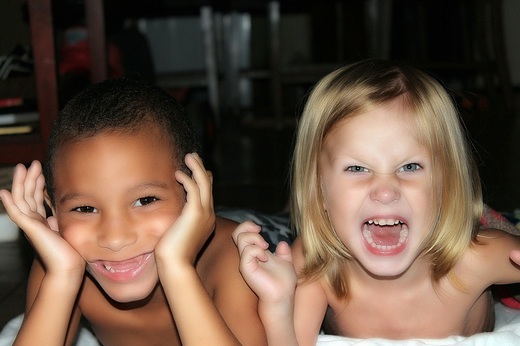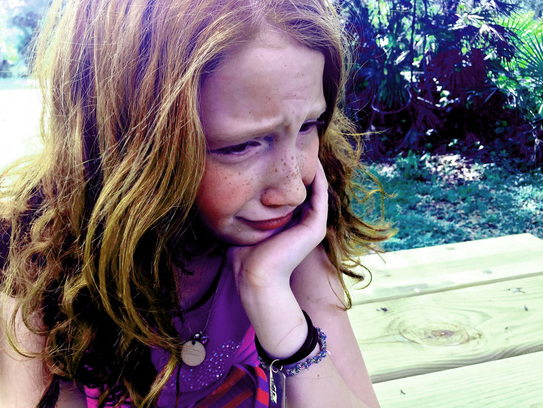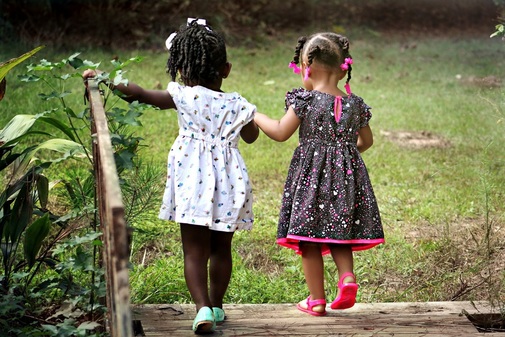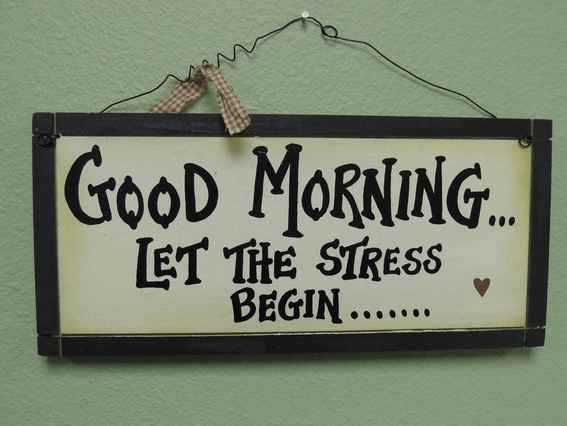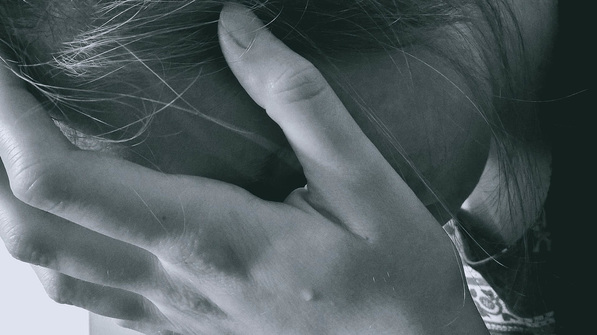|
Something in me, dark and sticky All the time it's getting strong No way of dealing with this feeling Can't go on like this too long We are onto something with the scientific discovery of the microbiome and what that whole inner ecosystem of life is doing to keep us alive and healthy. A microbiome is the ecological community of various microorganisms that literally share our body. This discovery has always emphasized the importance of these microorganisms inhabiting the human body and their relationship to our health and disease. Research has estimated there are 100 trillion organisms that make up our microbiome, meaning that for every one of our human cells there are at least 9 microbial cells, and so it is often said that we are 1/10th human and 9/10ths other living beings. These tiny microorganisms help us to perform life-sustaining functions that we couldn’t perform without their collaboration, which is why we need them and why they are so important in staying healthy. Research is suggesting that "the mammalian immune system, which seems to be designed to control microorganisms, is in fact controlled by microorganisms."[1] Let that sink in a bit. It is also these 'foreign' microorganisms that establish whether we are susceptible to illness and poor health. Therefore the microbiome would play a major role in autoimmune issues like diabetes, rheumatoid arthritis, muscular dystrophy, multiple sclerosis, fibromyalgia, and perhaps some cancers.[2] Any altered mix of microbes would also be linked to obesity, depression, bipolar disorder and other stress-related psychiatric disorders. They are like the soil in which we, the beautiful plant, grows and thrives. This is for real Digging in the dirt Stay with me, I need support I'm digging in the dirt To find the places I got hurt Open up the places I got hurt The more I look, the more I find As I close on in, I get so blind I feel it in my head, I feel it in my toes I feel it in my sex, that's the place it goes In looking at health holistically, we understand that the human being evolved along with the microbiome. One did not develop and then the other jumped into the garden because it looked like a pleasant place to take up residence, we have always depended on this collective inner ecosystem for our life and health. Every time we have stressed or abused our body, this inner community is also affected and their health will decline or in extreme situations, the less helpful microbes will flourish instead. Antibiotics are known to disrupt the gut flora and kill off healthy microbes that aid in digestion and in nutrient absorption and conversion. Chronic emotional stress can affect the microbiome health just as it affects us. Being born by cesarean section is known to reduce the number of microbes we develop throughout our life. Food that is no longer fresh and nutrient rich can disrupt the microbes, just as whole, fresh foods can nourish and replenish this flora. The recent craze to take probiotics, prebiotics, yogurt and other fermented foods, wild herbs and foraged foods are excellent ways to maintain a healthy digestive system as well as the other systems supported by the microbiome. The truth is that past chronic stress, trauma, lack of vitality are all showing up later on in the symptoms that are labelled as common diseases such as diabetes, rheumatoid arthritis, multiple sclerosis, fibromyalgia and depression. The underlying root cause goes back to understanding what is causing the stress, trauma, lack of vitality and in turn depressing the immune system. This root cause is poorly addressed by conventional medicine and medications as only the diseases (current symptoms) are treated. During a homeopathy session however the root is explored, and hopefully discovered in the process, and each individual is provided with a holistic treatment that can help the body to overcome the results of any stress, trauma and lack of vitality. When this treatment is well received by the body, a person can regain their healthy state and this in turn can slowly build a healthier microbiome as their overall health is restored. I'm digging in the dirt Stay with me I need support I'm digging in the dirt To find the places I got hurt To open up the places I got hurt The microbiome is our own dirt, and in order to heal the inner ecosystem we need to start digging. Get the support you need to dig in your own dirt! This song is about "investigating the layers within yourself" and is an angry song that deals with Gabriel's dark side. He explained to Uncut magazine: "I read lots trying to understand the buttons that operate and make you feel the way you do. When you have self-knowledge, you don't fall into the same behavioural traps. One of the keys is – take responsibility. Blaming anyone else, especially in relationships is a futile activity and not going to move you forward."
1. Round, J. L.; Mazmanian, S. K. (2009). "The gut microbiota shapes intestinal immune responses during health and disease". Nature Reviews: Immunology. 9 (5): 313–323. doi:10.1038/nri2515 2. Wu, Shaoguang; et al. (2009). "A Human Colonic Commensal Promotes Colon Tumorigenesis via Activation of T Helper Type 17 T Cell Responses". Nature Medicine. 15 (9): 1016–1022.doi:10.1038/nm.2015. PMC 3034219 PMID 19701202. How does holistic treatment support healthy living? Why try homeopathy? Having a life long study in the principles of nature and healthy living, Lauren Trimble is happy to share her knowledge and experience. The art of retuning the body’s natural healing capacity & developing consciousness in a compassionate and gentle way is the gift that homeopathy brings to her current holistic practice.
0 Comments
A safe, gentle support for childhood development and its associated ills The frequent illnesses of children can be bewildering for many parents. And in the modern medical climate it is hard to believe that illness and disease have an important role to play in growth and development. Homeopathy can offer a safe, effective, and inexpensive approach to first aid, acute, and chronic issues that arise in the course of raising a family. For simple first aid and acute situations there is a usual group of homeopathic remedies that are known and a decision for the specific remedy can be made simply and quickly. There are numerous pages online, family kits, and how-to books that provide easy to follow protocols and once the basics of homeopathy are understood, it is usually simple to find remedies for these kinds of situations. For more chronic, longer lasting conditions, it is more complex. Often homeopathy can address the underlying causes reflected in difficult physical, emotional, behavioural, and psychological problems for younger children and babies. In these chronic situations sometimes parents will notice that their child is simply restless or discontented and can't figure out what to do for them. It is difficult for their doctor to make a diagnosis or give treatment at this stage before there are no obvious signs or functional symptoms. Perhaps the child suddenly becomes whiny or clingy, or becomes afraid of the dark. Or the child is not as vibrant as before, gets bored easily, or lacks the concentration they used to have. Sometimes a child becomes aggressive or acts destructively and there is no explanation for this sudden shift in behaviour. These can all indicate a child who is no longer in balance and is struggling in their adaptation to new changes and to their own maturation, and since a young child grows so quickly it seems like each week they are facing very different and new challenges. We are all constantly changing and adapting Every one of us is in fact changing according to our needs, to our growth and to environmental changes. We are always in flux, adjusting, adapting, evolving, this is just occurring more often and at a faster rate in children than in adults. In health each of us is dynamic, allowing life to change us, adapting, integrating and embracing the newness of each day. When this natural experience of life becomes stuck then we are unable to adapt and to accept, we will want to hold onto something, to not let go and make static what must remain in flux. We all experience both poles of this dynamic and the degree to which we are in each pole relates to how vital and healthy we are. Take grief for example, an experience of the loss of something we hold onto because we value it, and then we are not able to accept other changes. We all know the experience of sadness and loss and how different that feels to the times when we are open and ready to embrace each exciting, new day. Children are no different and supporting them in their challenges and illnesses with homeopathy allows them the chance to grow, to become vital and robust, to develop a strong immune system and to develop more flexibility and adaptability when the next challenge occurs. However, if we stop or suppress the symptoms of the challenge or illness arising, this chance can be lost. The body will now add to its load of adaptation an unresolved experience and will reroute its need for growth and change to another location or situation while still carrying the old one. This eventually taxes the system and the psyche, and the child's natural development is impeded or even stopped on various levels, sometimes permanently, until the original adaptation or need is supported and allowed to inform the individual's process. Homeopathy is helpful with those subtle shifts of behaviour mentioned above and to return the natural developmental process so that the child can adapt and continue to grow and evolve. Life can once again be enjoyable and appreciated, for the child, as well the parents and other children. The many stages of childhood development involve a movement towards greater independence and the defining of a separate self, a unique person, which is why these challenges and diseases are not always obvious or physically based. The homeopath, or the educated parent, can chose from a wide range of remedies aimed at supporting the body’s own healing response and at the same time allowing the child to move through a childhood illness rather than suppressing it. For children under the age of seven, it is also important to stress the interconnectedness they experience within the family and taking the case of the parents to understand the 'environment' of the child is an excellent means to help with the child's symptoms. It is important to point out that for serious and life threatening situations, the only sensible choice is to seek out immediate medical attention. I am talking here about what can be done when we notice the early indications that there is something 'off' with a child. For parents who are concerned about side effects related to medication, homeopathy as an energetic approach that rarely has complications when taken with conventional medicines, and there are no worries about future negative effects on the developing child. Through the homeopath’s questioning and the parent’s observations, a remedy can be found to alleviate the child’s discomfort and to rapidly ease their symptoms. Homeopathic remedies are also gentle and safe for a mother and her unborn child. They can assist both with the changes brought about by every stage of pregnancy and birth and there are well known homeopathy protocols to reduce trauma induced symptoms and speed up the healing during and following the birthing process. Homeopathy can offer a multitude of long-lasting, beneficial effects during all stages of the birthing process. It is never too early or too late during the obstetrical process to use homeopathy, whether you choose conventional hospital birth, natural home birth or midwife-assisted birth. For parents and families, homeopathy is a gentle means of supporting children in their development and growth and the associated illnesses, and thus encouraging a child's health for years to come. How does holistic treatment support healthy living? Why try homeopathy? Having a life long study in the principles of nature and healthy living, Lauren Trimble is happy to share her knowledge and experience. The art of retuning the body’s natural healing capacity & developing consciousness in a compassionate and gentle way is the gift that homeopathy brings to her current holistic practice. If you enjoyed this article find out more at Birdsong.
More and more, stress is found to be the root of most Western disease and illness. I had a client a while ago who was having a hard time making choices and wanting to erase the results of the choices she did make, wishing she could go back and make a different choice after the fact. This was creating a great deal of anxiety and fatigue, which is why she decided to come for homeopathic treatment. Part of what she described in the sessions was that when something was hard to do, such as losing weight, she experienced a sense of failure. Her reaction to this was to over think things as a way to be sure her decision would be the correct one. "I prefer having feedback and reinforcement to know I have made the right decision and thus succeeded." She experienced this at home with her partner and children, with her parents and family, and when she was at work. When I asked her when she did not experience this difficulty with decision making in her life she said that on a recent canoe trip she had felt really good. "On the water you are following the currents and you have to adjust, a decision is not permanent, there is instead a responding in the moment rather than a definitive choice." In the outdoors, she realized that her physical actions were not encumbered by complex decision making and that she knew what to do and so felt confident. She could move forward and not drag in this uncomfortable state of unsuccessful decision making. What this client was describing relates to the basic stress response, although it has the flavour of her own individual experience. How does the stress response happen? I was pointed to the work of Hans Selye and his stress model the "General Adaptation Syndrome" by a recent interview with Tom Myers I listened to this week. Selye defined the stress response and how aging and disease are linked to chronic exposure to stress. It is important to note that stress is not all bad for us. Selye noticed that the body adapts to stressors with a predictable biological pattern so that the internal balance, or homeostasis, can be restored and maintained. How does this work? In an attempt to retain homeostasis, (the tendency of the body-mind to maintain a stable internal environment despite changes in external conditions to reduce disturbance to its normal condition or function), the body uses the hormonal system which is connected with the fight or flight response. With this response, the body tries to resolve the disturbance quickly and efficiently and does so by releasing hormones that enable the body to combat stress as immediately as possible. Selye discovered that although the body-mind wants to control or reduce the stress, there are limits. The finite supply of the body’s current energy to adapt to the stressful environment is limited and is even more compromised when the body-mind is exposed to the stressor continuously. Selye broke this process down to three stages.
How is our stress addressed in the homeopathic case taking? In medicine distress is described as an aversion and arises when a person is unable to adapt completely to the stressors and the resulting stress. A person can then develop maladaptive behaviours such as aggression, passivity or withdrawal. In psychology, stress is the feeling of strain and pressure. Positive stress helps improve performance and plays a factor in motivation, adaptation, and reaction to the environment. This is know as eustress and is the good part of being stressed. Health exists only in reaction to the stresses we experience that develop our growth, feeling of fulfillment, satisfaction and well being. Even our ability to respond is tied to having an original stressor that we have to react to. Researcher found that babies who lacked stimulation and touch were stunted and underdeveloped. Even so called negative stimulation was more beneficial to their growth than the lack of it! Eustress is never defined by what the stressor is, but by how each individual perceives that stressor. Some people may be more curious than afraid of a bear but they run up the tree anyways. Others may be terrified and convinced the world is ending as they miraculously scramble their way up the branches. Stress can be external and coming from the environment, the bear chasing you up a tree, but it may also be created by internal perceptions that cause an individual to experience anxiety or other negative emotions surrounding a situation. Go back to my client who could not make simple decisions because her perception of making a wrong choice seemed much more threatening and dangerous in her mind than it was in reality. We can experience stress, or perceive things as threatening, when we do not believe that our current resources for coping with the stressor are enough for what the circumstances will demand. In other words, when we think the demands being placed on us exceed our ability to cope, we can then perceive stress. This is why we can't look at stress alone as the problem but we have to get to the roots of the person's inner experience of it. This is impossible to do with a blood test or an MRI, but is possible when explored in sessions with a homeopath trained in this method. Saying it all over again in Myer's words
To maintain the homeostatic balance either the sympathetic nervous system is dominant while we feel under threat and we express it by the fight, flight or fright responses, or we return to the parasympathetic in order to repair, repose, rest and restore. All of the fight, flight or fright responses are highly muscular actions. This extreme action dissipates the chemicals that arise during the sympathetic state helping us to go back to the parasympathetic state. But if you keep stimulating the sympathetic response, it never goes back to the opposite side again. Stimulated again and again, we get stuck, unbalanced, and this leads to exhaustion and fatigue. This client originally came into the office complaining of anxiety and fatigue. It was only through our exploration that the root of her stress was found to be decision making and the related misperceptions. After taking a homeopathic remedy she immediately felt less anxious and had more energy again. This allowed for a greater exploration in later sessions of how her stress response got stuck in the sympathetic response. She was able to greater understand the triggers she has to perceived stressors and to find out more about who she is, while the remedy helped her body regain homeostasis. Matching our inner picture of the world with what is actually happening Myers feels that getting 'stuck' happens when people don't make themselves felt in the world by having the sense that they can change the world around them. When no matter what a person does, react, lash out, get angry, suppress, and it has no effect they will experience the opposite of eustress, distress. Then they are constantly stimulated and yet can do nothing to release themselves from the stressor. Most of us have at least one thing in life that seems to be constantly wearing us down or that we are avoiding unsuccessfully. Modern urban life is a stressful experience with a large number of stressors and a high degree of stimulation. According to Myers, if we experience eustress we feel that our reactions are reliable. However when the inside and outside world do not match up, the perception of the world that you experience in the body-mind versus the data you are getting from the outside world, this difference creates stress. It is basically a lack of matching the inner picture of the world with what is actually happening. This does not have to be good or bad, but is simply the body-mind saying there is a difference between what I thought would happen and what is happening. The body-mind mobilizes to change it in two ways, either to change the self, or to change the external information to match the picture of the world that you have. An example Myers gives is when you get a parking ticket, either you pay it to restore the agreement between the inner or outer, or you refuse to pay and change the world by saying it is not fair and you will fight the ticket in court. If you successfully do either, the stress will resolve and you will not have distress but instead experience eustress, your reaction was reliable and successful. If you can't make a choice and do nothing but put the ticket in the glove box yet continue to think about how to bridge the incongruity between the internal and external world, that will lead to chronic distress and then exhaustion and later issues like autoimmune diseases. He is basically saying that people cannot make the gap between how they are supposed to be in the world and how they are in the world. This perception is key to understanding the basis for the stress people are experiencing and this is explored during a homeopathic session. Other approaches to stress reduction include meditation and high-intensity exercise. |
Lauren TrimbleHomeopath and Holistic Practitioner. Archives
October 2022
|

